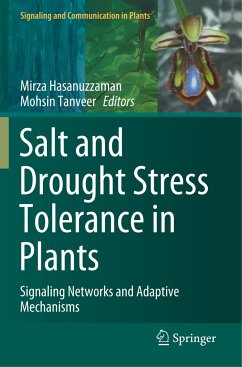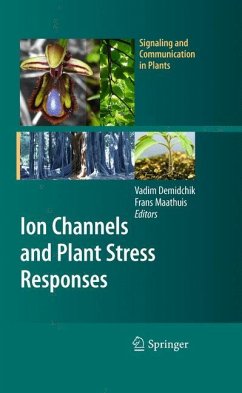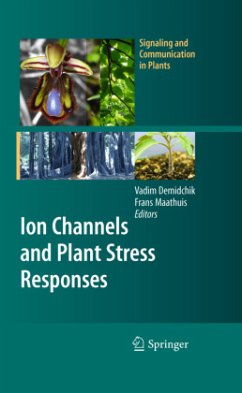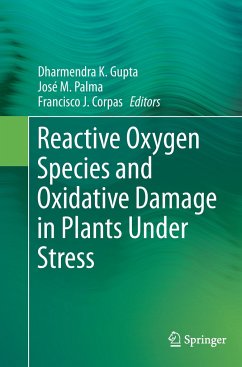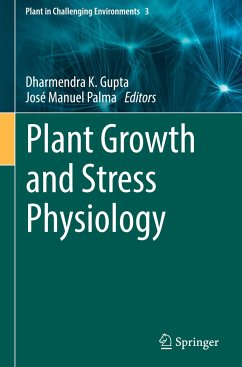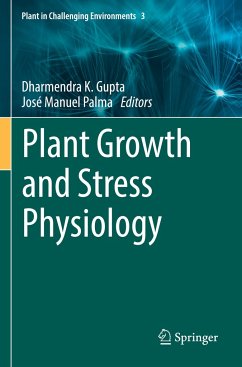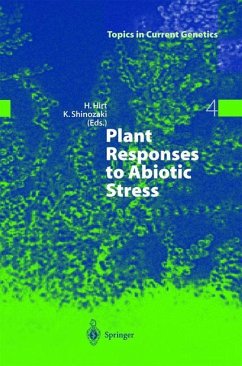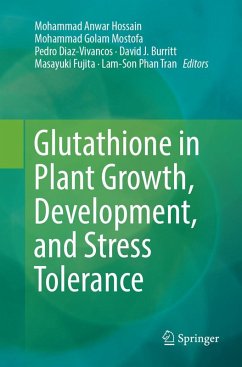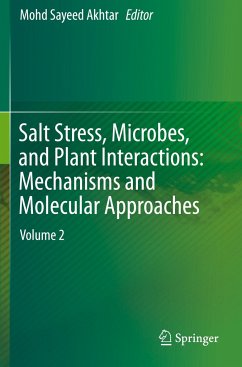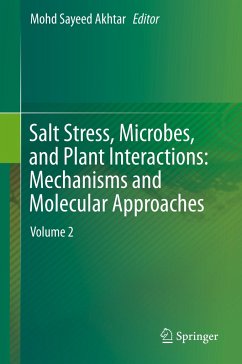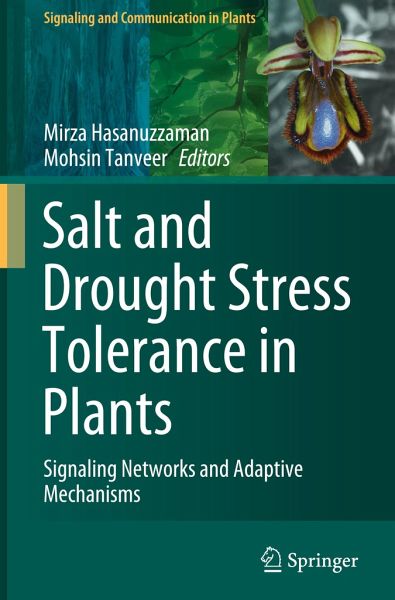
Salt and Drought Stress Tolerance in Plants
Signaling Networks and Adaptive Mechanisms
Herausgegeben: Hasanuzzaman, Mirza; Tanveer, Mohsin

PAYBACK Punkte
57 °P sammeln!
This book presents various aspects of salt and drought stress signaling in crops, combining physiological, biochemical, and molecular studies. Salt and drought stress are two major constraints on crop production worldwide. Plants possess several mechanisms to cope with the adverse effects of salt and drought. Among these mechanisms, stress signaling is very important, because it integrates and regulates nuclear gene expression and other cellular activities, which can help to restore cellular homeostasis. Accordingly, understanding the signaling cascades will help plant biologists to grasp the ...
This book presents various aspects of salt and drought stress signaling in crops, combining physiological, biochemical, and molecular studies. Salt and drought stress are two major constraints on crop production worldwide. Plants possess several mechanisms to cope with the adverse effects of salt and drought. Among these mechanisms, stress signaling is very important, because it integrates and regulates nuclear gene expression and other cellular activities, which can help to restore cellular homeostasis. Accordingly, understanding the signaling cascades will help plant biologists to grasp the tolerance mechanisms that allow breeders to develop tolerant crop varieties.
This book is an essential resource for researchers and graduate students working on salt and drought stress physiology and plant breeding.
This book is an essential resource for researchers and graduate students working on salt and drought stress physiology and plant breeding.



